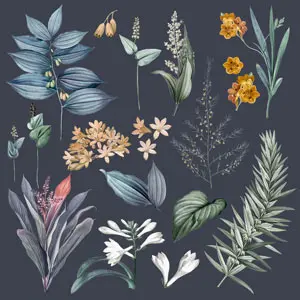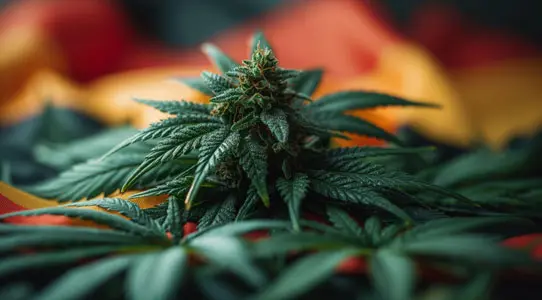Breast cancer doesn't end when treatment stops – for many women, it's where the real healing begins. The physical recovery may be visible, but the emotional and spiritual scars often linger. From sleepless nights and anxiety to hormonal shifts and fatigue, the road to tranquillity can feel long and uncertain.
But nature, as it turns out, offers gentle allies. Cannabis and adaptogens are emerging as holistic companions in recovery – helping survivors rebuild from within and rediscover calm courage and connection.
The Deeper Side of Healing
Healing after breast cancer isn't just about eradicating disease; it's about restoring balance – mind, body, and spirit. While medical treatment addresses the cancer itself, many women seek natural ways to manage the aftershocks: pain, stress, insomnia, and the emotional toll of trauma.
This is where plant-based healing enters the picture. Modern science is exploring how compounds in cannabis and stress-modulating herbs (known as adaptogens) can support women through this next chapter of recovery – safely, gently, and holistically.
A survey published by Facing Our Risk of Cancer Empowered (FORCE) found that nearly half of breast cancer patients use cannabis to manage pain, anxiety, or sleep difficulties – often with improved well-being and quality of life (FORCE, 2023).
Adaptogens: The Stress-Balancing Botanicals
Adaptogens – a category of herbs and mushrooms – are known for helping the body adapt to stress and restore balance. Think of them as nature's resilience boosters.
According to the U.S. Department of Veterans Affairs Whole Health Library, adaptogens help regulate the endocrine and immune systems, improve mood, and enhance overall stamina (VA Whole Health, 2023).

For breast cancer survivors, adaptogens like Ashwagandha, Rhodiola, and Reishi mushroom can:
- Support hormonal balance disrupted by chemotherapy or endocrine therapy
- Improve energy and focus ("chemobrain")
- Reduce anxiety and enhance sleep quality
- Strengthen immune resilience
A review published in the National Centre for Biotechnology Information (NCBI, 2020) found that ashwagandha may reduce inflammation and assist with treatment-related fatigue (PubMed, 2020).
Finding Your Way Back to Tranquillity
Recovery is deeply personal. For some, it's found in a sunrise yoga session; for others, in a tincture that brings relief or a cup of adaptogenic tea that soothes the soul.
If you're considering integrating cannabis or adaptogens into your wellness plan, always consult your oncologist or integrative medicine practitioner. Some herbs may interact with medication, and professional guidance ensures safety and effectiveness.

Here are a few gentle ways to start:
- Cannabis-assisted calm: Use doctor-approved CBD or THC products for symptom management.
- Daily adaptogen ritual: Add ashwagandha or reishi tea to your morning routine.
- Movement and mindfulness: Support your body with gentle yoga, breathwork, and time in nature.
- Rest and reflection: Healing is not linear – permit yourself to slow down.
The Takeaway
The journey from trauma to tranquillity is one of courage, patience and self-compassion. Cannabis and adaptogens won't erase the scars, but they can help soften their hold – bringing peace to the mind, strength to the body, and balance to the soul.
Because healing isn't just about surviving; it's about thriving.
Disclaimer: This blog supports responsible cannabis use. The information contained in this article is for educational and informational purposes only and is not intended as health or medical advice. Always consult a physician or other qualified health provider regarding any questions you may have about a medical condition or health objectives.

From Trauma to Tranquility